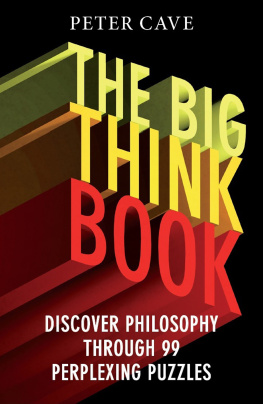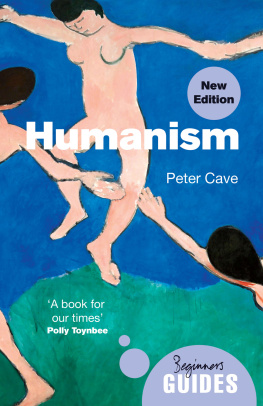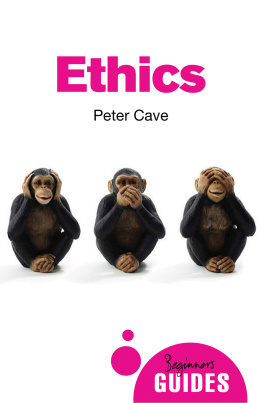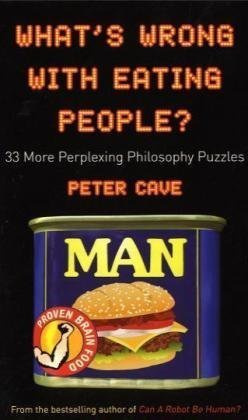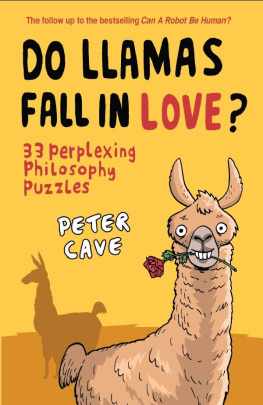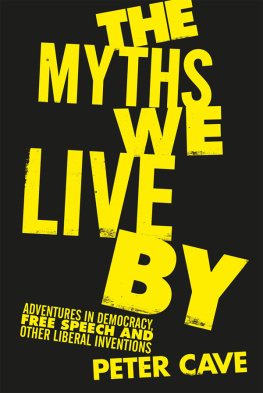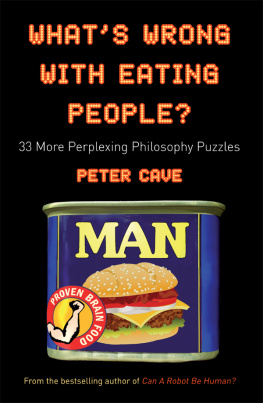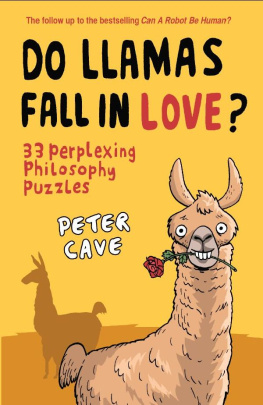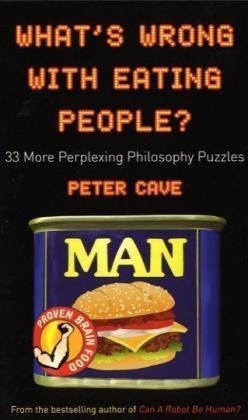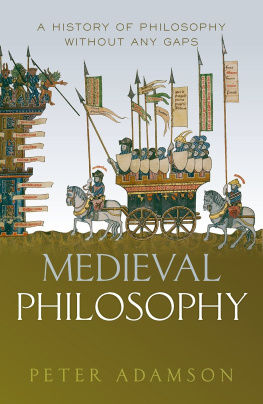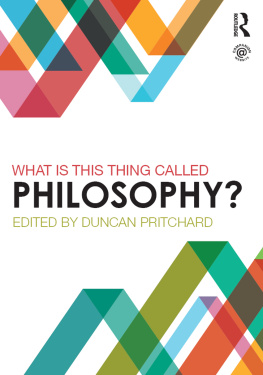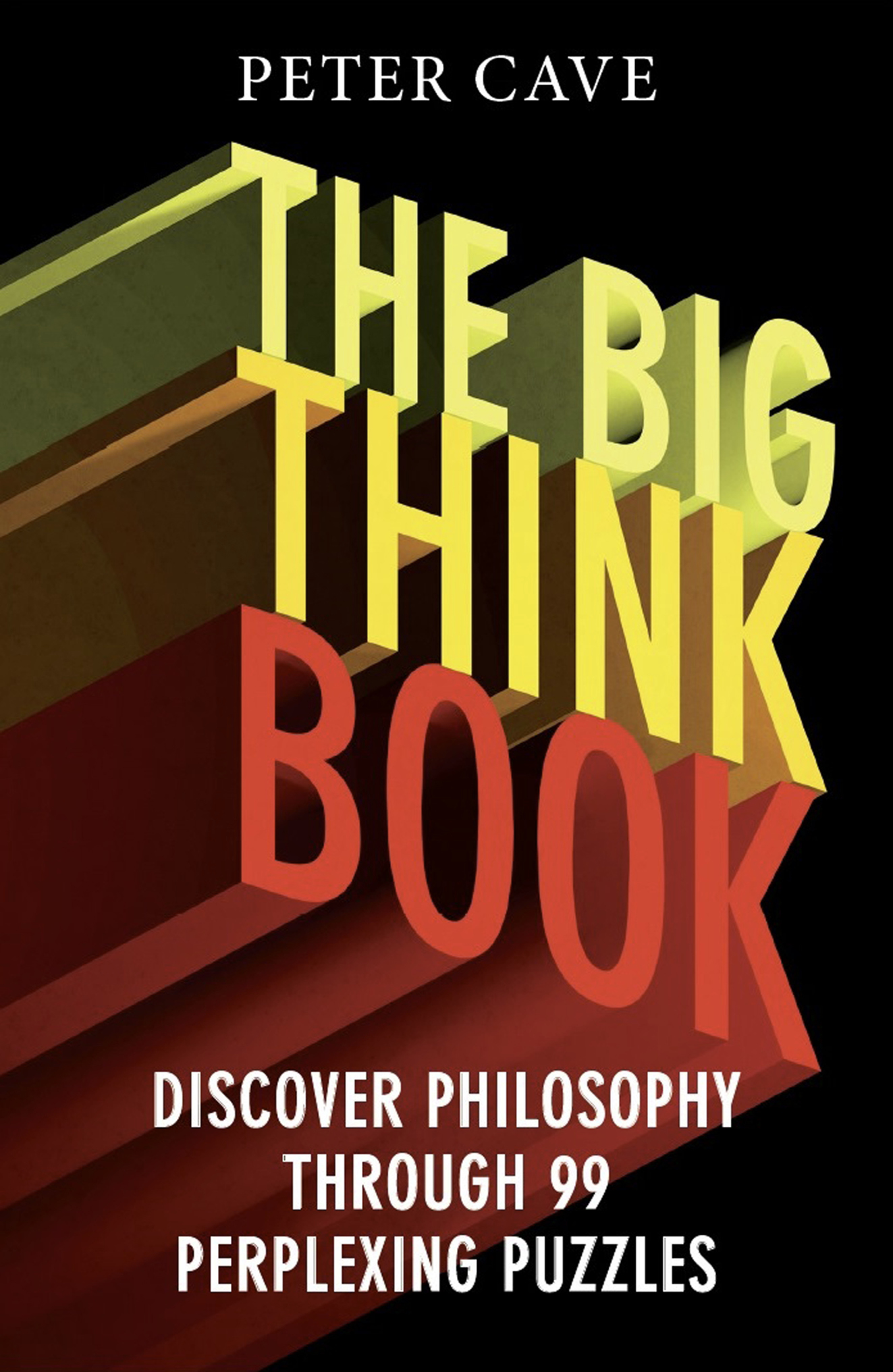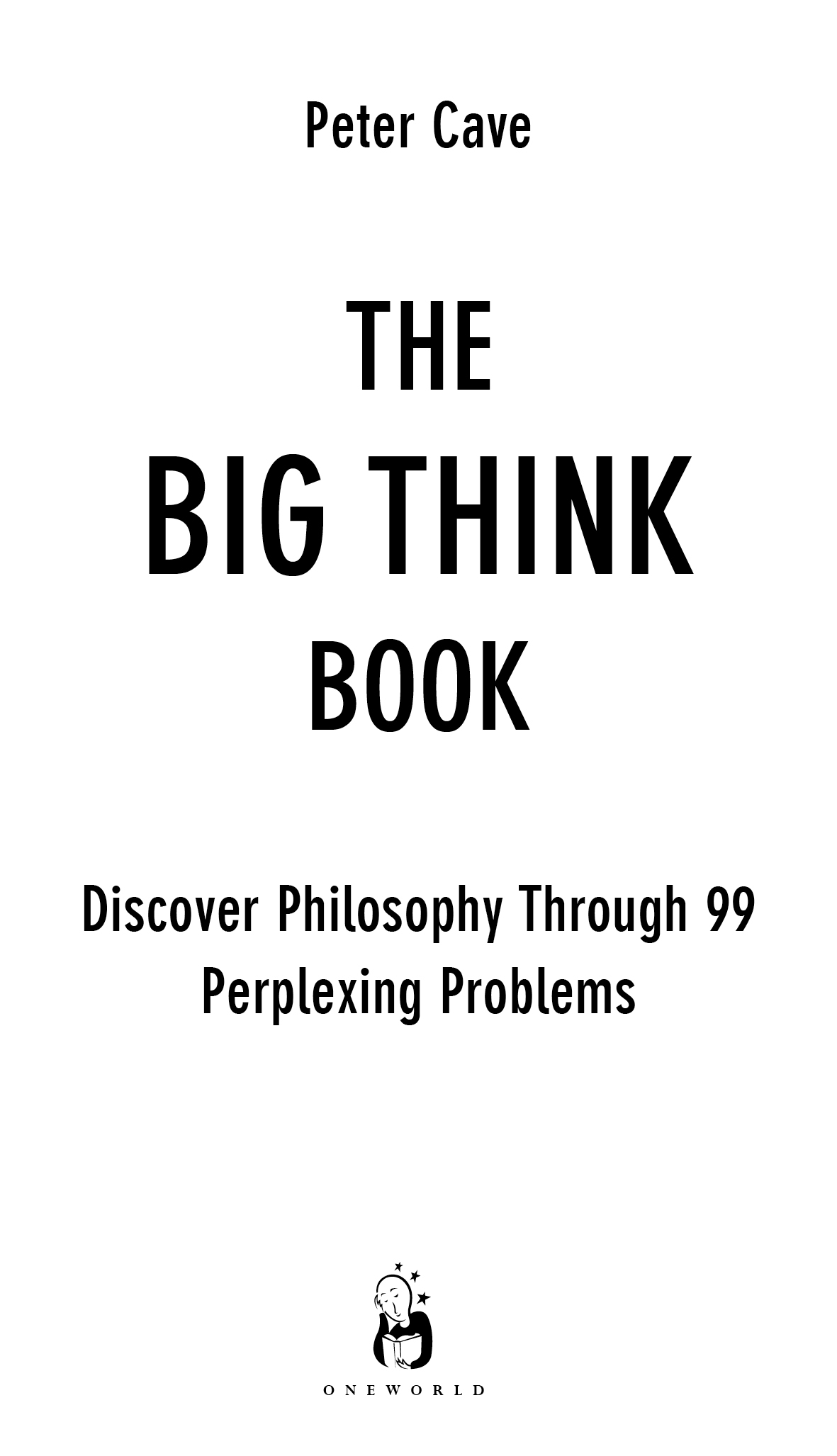About the Author
PETER CAVE lectures in philosophy for The Open University and New York University (London). He is the author of eight books on philosophy, making it accessible to a wide audience, including the bestselling Can a Robot be Human?: 33 Perplexing Philosophy Puzzles .
A Oneworld book
Published in North America, Great Britain and Australia by Oneworld Publications, 2015
This eBook published by Oneworld Publications, 2015
Copyright Peter Cave 2007, 2008, 2010, 2015
The moral right of Peter Cave to be identified as the Author of this work has been asserted by him in accordance with the Copyright, Designs and Patents Act 1988
All rights reserved
Copyright under Berne Convention
A CIP record for this title is available from the British Library
ISBN 978-1-78074-742-2
eISBN 978-1-78074-743-9
Typesetting and eBook by Tetragon, London
Oneworld Publications
10 Bloomsbury Street
London WC1B 3SR
England
Prologue
Lets Do It
Many people would rather die than think; and that is what they do.
Bertrand Russell
All of us think about things. That does not yet make us philosophers; but it nearly does.
If you puzzle about why, or whether, there are some things you ought or ought not to do some things that are good; some things bad then you are something of a philosopher. If you wonder how things really are whether the mind is nothing but the brain; whether the world is divinely caused you are philosophizing. And if you ask questions such as What does it all mean? well, there is yet more evidence of your living within the philosophers realm.
Reflecting on the puzzles, paradoxes and perplexities in this book, from ethics to God to space and time, from politics to consciousness to logic, love and fiction, is to do philosophy. Well, it is to do philosophy, once trying to think systematically and clearly about quite what the problems are, the assumptions made and where they lead. The philosophy here is presented by way of a kaleidoscope of styles, varying from dialogues to monologues, from everyday experiences to bizarre thought experiments, from a discussion with God to arguments between Grasshopper and Ant and from the light-hearted to the deeply serious. All, I hope, are polished with a lightness of touch. The chapters are deliberately short, though designed to give rise to plenty of thought, further questions and debates, be they debates with yourself or with others, whether at work, at play, at romance or even when failing asleep.
The word philosophy, deriving from the Greek love of wisdom, suggests something grander and more insightful about life and the universe than that of other subjects. True, the purveyance of wisdom can seem far removed from the practices of todays philosophers; philosophers are usually lecturers, maintaining employment by forever publishing research, even trying to show economic impact. It was different in earlier times. Spinoza ground lenses; Leibniz was a librarian; John Stuart Mill worked for the East India Company, moonlighting as a journalist, and later became a Member of Parliament. Today there is a tendency for philosophy to be technical: take a look at some current volumes of academic philosophy. Technical studies have their place, but we should not be misled into thinking that, at heart, philosophy is open only to philosophical technocrats and professionals. Major philosophical thinking from Plato to Hume to Wittgenstein is open to us all. I hope that this collection shows that to be so.
All things conspire
These puzzles, tales and dialogues embrace the whole range of philosophical wonder, from formal paradoxes in logical reasoning to moral dilemmas. Although they are grouped into themes, to quote Hippocrates, all things conspire so, the sections overlap as do some puzzles, being different approaches to fundamental perplexities, such as the nature of the self and how we represent the world around us. A few puzzles might have more obviously appeared elsewhere. Newcombs Paradox (), for example, more naturally would fit in Part V on Knowledge, but has an interesting link with religious belief. Let us celebrate the intermingling and weaving and also the dipping into chapters that catch the eye and interest, rather than ploughing through sequentially. Note, too, the endnotes for further musings.
Simply by virtue of belonging to a community of speakers, we possess materials for philosophizing. There need be no special demands for mathematical ability, erudite historical knowledge or scientific investigations just our everyday experiences. Philosophers rarely become directly involved in physical experiments, treks through muddy swamps or the hard work of archaeological digs. We prefer the armchair, pen and paper (well, keyboard), and even the occasional glass of wine or two. Philosophers do, though, reflect on others worldly investigations, be they physical, psychological or religious. Philosophizing itself displays the interconnection of things.
Whats wrong with contradictions?
With the paradoxes, puzzles and perplexities, we often start with some comments, beliefs or principles, which appear obviously true. These can be seen as premisses. We do some reasoning, expecting to reach acceptable conclusions. Perplexity arises when the reached conclusions hit us as manifestly false, unacceptable or, in some way, undesirable. They contradict or are in tension with our starting beliefs. Something must have gone wrong with the reasoning, or maybe our starting points are mistaken or could the tensions be intrinsic features of the world? Philosophers try to locate any mistakes, seek to explain how the perplexities have arisen and aim to avoid contradictions.
Two contradictory thoughts cannot both be true. You come home and find two notes left by your partner. One says, Wait in for me, and the other says, Dont wait in for me. What do you do? They are contradictory instructions so, you are baffled. Witness bafflement at this books dedication. Hence, we need to avoid contradictions, to avoid being contra in speech or diction. That avoidance applies beyond instructions. Your friend tells you, It will rain today, and then adds, It wont rain today. You are bemused: what does she believe; what should you do umbrella-wise? Because we seek understanding, we may try to explain away contradictions: maybe the notes show a mind change; maybe the speaker of rain speaks of different locations.
Opening eyes, exercising the mind and talking the sun down
Seneca of ancient Rome commented how things of daily occurrence, even when most worthy of amazement and admiration, pass us by unnoticed. We may be likened to sleepwalkers, successfully finding our way, yet unaware of what we are doing. Philosophy opens eyes.
Philosophy has value in itself, intrinsic value, but it is also a means of exercising the mind exercising the mind about matters that matter. When difficulties in finding correct answers come to the fore, it may even generate some welcome humility. Further, philosophy is a means of sharing, of togetherness. Socrates of ancient Greece, often seen as the inspirer of Western philosophy, stressed the importance of dialogue. Discussing with others what counts as fair salaries, whether speech that offends should be permitted, how free we are really, may help to bring forth a common humanity, a genuine sense in which we are all in it together, trying to understand the universe and our place within. That contrasts with the mythical economic mantra of were all in it together which has been much loved in recent years by those in power in Britain.

